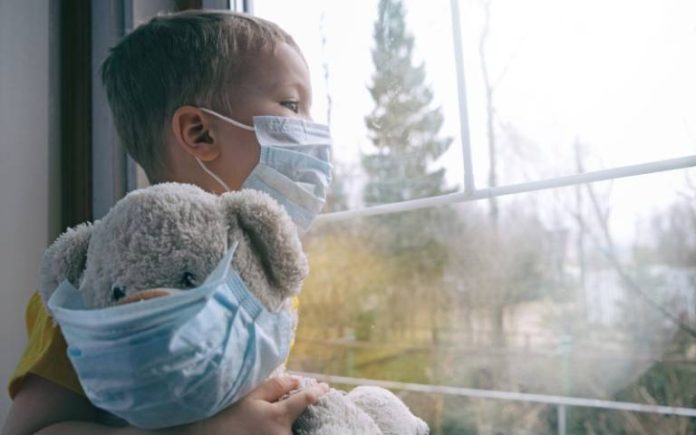As young people weren’t considered to be at high risk from Covid-19 directly, pandemic policy decisions largely ignored their needs and resulted in their long-term detriment according to a study
The report, titled “The Impact of COVID-19 on Education, Food & Play-Leisure and Related Adaptations for Children and Young People,” outlines how slow government action and policy gaps in efforts to stop the spread of Covid-19 had negative impacts on children and young people’s health and welfare.
It’s divided into two volumes: the “International and National Overviews” volume highlights the wider impacts of the pandemic on children across the world, while the “International Overview” volume drills down on the impacts on three countries, the UK, South Africa and Brazil.
As a result of the social isolation and economic disruption caused by lockdowns, children and young people’s educations were stunted, their access to nutritious food was reduced and their ability to develop socially through play was significantly restricted. These impacts were worst for those living in disadvantaged poor households.
Within the UK, food poverty and insecurity increased amongst vulnerable and monetary poor households. In part this was due to the limited access families had to low-cost grocery stores during lockdowns, having to rely more on local food providers that charged higher prices. In addition, the closure of schools cut off access to subsidised school breakfasts and lunches, further restricting access to nutritious food. National support schemes were slow to be effectively implemented.
As education moved online in the UK, the digital divide also compounded educational inequalities during the pandemic, with households and regions with insufficient internet access falling behind. Despite government efforts to supply computers and modems to lacking households, according to research cited by the report, 28% of UK pupils remained without proper internet access during the pandemic, widening the learning gap.
Interactive play and leisure for children and young people likewise moved largely inside and online as social distancing policies were enacted. Play is crucial for children’s cognitive and social development, and is a recognised right of the child. For deprived households, the shift often meant losing out on socialisation because of digital access inequalities, while many living in deprived areas lacked access to high quality greenspaces. BAME children were identified as missing out on leisure activities in particular, as they tend to rely more on access to school sports, which were unavailable.
Collectively, and combined with the ongoing cost of living crisis, the researchers believe that these disadvantages will likely have detrimental consequences for children and young people in the short and long-term, with many not yet visible.
The researchers expect that policy gaps during the pandemic will have negative impacts on young people’s professional life trajectories, healthy lifestyles, mental wellbeing, educational opportunities, and self-confidence.
The UK’s situation is not unique, with countries around the world, including South Africa and Brazil as described in the report, having experienced similar and often more extreme inequalities.
Professor Lauren Andres (UCL Bartlett School of Planning), lead author of the report, said: “Covid exposed and exacerbated inequalities that already existed prior to the pandemic. Children and young people’s voices and needs were not heard and accounted for. Our research shows that because of policy gaps and slow government action during the pandemic, disadvantaged children and young people are now facing serious consequences that could be with them for a long time, both here in the UK and around the world.”







